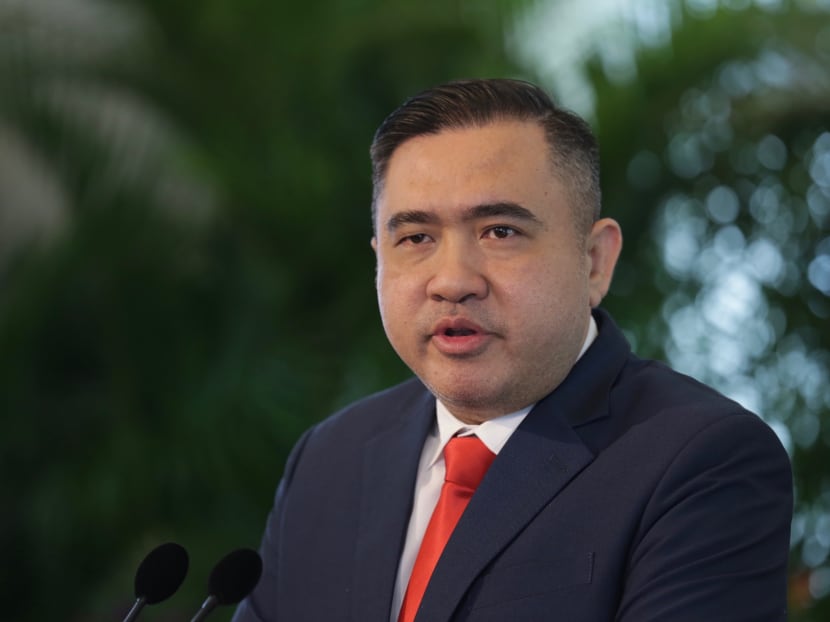Suspending RTS project does not mean it may be aborted: Malaysian Transport Minister
SINGAPORE — Malaysia’s request to suspend the rapid transit project with Singapore should not be seen as an indicator that it plans to terminate it, the country’s Transport Minister Anthony Loke said on Tuesday (May 21). He stressed that his country is committed to find a solution so that the project can proceed in “other forms”.
SINGAPORE — Malaysia’s request to suspend the rapid transit project with Singapore should not be seen as an indicator that it plans to terminate it, the country’s Transport Minister Anthony Loke said on Tuesday (May 21). He stressed that his country is committed to find a solution so that the project can proceed in “other forms”.
He was speaking at a media conference in Singapore, where he and his Singaporean counterpart Khaw Boon Wan signed a supplementary agreement to formally suspend the the Johor Baru-Singapore Rapid Transit System (RTS) link project.
“We are not discounting any possibility right now, but we do not want to sum up that we’re going to terminate this project at this point of time,” Mr Loke said.
In his opening remarks at the press conference, Mr Loke said that the suspension will give his government time to explore “other affordable and sustainable solutions to address traffic congestion at the border”.
Under the supplementary agreement, the suspension will last until end-September and Malaysia has to pay Singapore more than S$600,000 in abortive costs.
If Malaysia chooses not to go ahead with the project at all, it will have to pay Singapore more than S$66 million according to the terms stated in the original bilateral agreement on the project.
Asked whether terminating the project will be more cost-effective than the other options he is considering, Mr Loke replied: “I do not want to jump the gun right now.
“We have another four months or so to discuss various options and we’re committed to find a solution to this issue.”
“I think we do not want to discount any possibility at this point of time, and I do not want to say either that we are going to terminate the project, because as I mentioned to Minister Khaw, very much on our part, we really hope that this project can proceed, but in other forms and other approaches."
EASING CAUSEWAY CONGESTION
A major consideration for the Malaysian government is the cost of project, he pointed out, adding that they are looking to rope in companies in the private sector for the RTS link project.
When asked how much lower the cost of the RTS link project should be for Malaysia to proceed with it, Mr Loke declined to give a figure.
“The important thing is that, if we are able to reduce the infrastructure costs, that will benefit the passengers and the public at large, because it will lower the fare structure in the future.”
By and large, what the public wants to see is for the project to proceed and alleviate the congestion at the Causeway, he said.
“And that’s what we’re doing, and I hope we can continue with the project, but with other forms and other approaches that can reduce the cost. I think that is the most important message that we want to send.”
Mr Khaw said that Singapore is open to “discussions and suggestions”.
While there are “always many solutions to the same problem”, he noted that different solutions come with “different price tags" and "different performances”.
For instance, he pointed out that the RTS link adopts a similar approach to the MRT system here, with a certain holding capacity of 10,000 people during peak period per hour and per direction. Though other options may be cheaper, the carrying capacity will be less, he added.
The suspension period, Mr Khaw said, will be used to discuss the “optimal point” where both parties are willing to proceed.
Referring to the congestion at the Causeway, he noted there are “genuine problems on the ground”, adding that there must be “some good practical solutions” to the challenges.
“RTS, we think, is a good way of making a difference. But who knows, there may be better and/ or other solutions,” Mr Khaw said.







